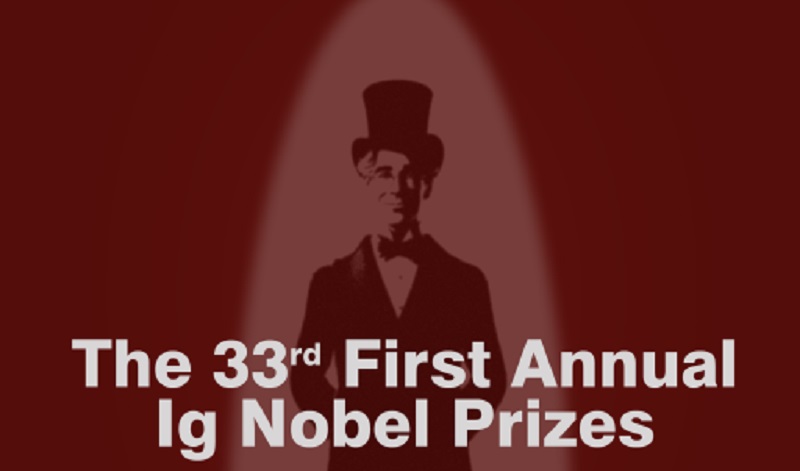
The Nobel Prize is renowned for recognizing intellectual achievements, but the Ig Nobel Prize, established in 1991, celebrates the quirkiest and most absurd subjects explored by brilliant minds. Its mission is to “honor achievements that first make people laugh, and then make them think,” and its name playfully parodies both the Nobel Prize and the term “ignoble.”
The 33rd Ig Nobel Prize ceremony was conducted online, where the 2023 award recipients, who possess profound expertise in a range of human-related fields, were presented with fictitious “ten trillion dollar bills.” These honorees can answer inquiries like “How bored do students and teachers become in school?” or “To what extent do amorous anchovies influence ocean water mixing?”
Here are the 2023 Ig Nobel Prize laureates and their peculiar research endeavors:
- Jan Zalasiewicz received the Ig Nobel Prize in Chemistry and Geology for his paper “Eating Fossils,” which delves into why numerous scientists have a penchant for tasting rocks.
- Chris Moulin, Nicole Bell, Merita Turunen, Arina Bahrain, and Akira O’Connor were awarded the Ig Nobel Prize in Literature for their study titled “The The The The Induction of Jamais Vu in the Laboratory: Word Alienation and Semantic Satiation.” This research explores the sensations experienced when individuals repetitively utter a single word.
- Faye Yap, Zhen Liu, Anoop Rajappan, Trevor Shimokusu, and Daniel Preston received the Ig Nobel Prize in Mechanical Engineering for their work involving reanimating deceased spiders and employing them as mechanical grippers.
- Seung-min Park was honored with the Ig Nobel Prize for inventing the “Stanford Toilet,” a multifaceted device equipped with technologies like a urinalysis dipstick test strip, a computer vision system for analyzing feces, and an anal-print sensor linked to a telecommunications system for swift substance analysis.
- María José Torres-Prioris, Diana López-Barroso, Estela Càmara, Sol Fittipaldi, Lucas Sedeño, Agustín Ibáñez, Marcelo Berthier, and Adolfo García earned the Ig Nobel Prize in Communication for their study on the mental activities of individuals skilled in speaking backward.
- Christine Pham, Bobak Hedayati, Kiana Hashemi, Ella Csuka, Tiana Mamaghani, Margit Juhasz, Jamie Wikenheiser, and Natasha Mesinkovska won the Ig Nobel Prize in Medicine for their investigation into whether there is an equal number of hairs in the two nostrils of each person, conducted using cadavers.
- Homei Miyashita and Hiromi Nakamura clinched the Ig Nobel Prize in Nutrition for conducting experiments to explore how electrified chopsticks and drinking straws alter the taste of food.
- Katy Tam, Cyanea Poon, Victoria Hui, Wijnand van Tilburg, Christy Wong, Vivian Kwong, Gigi Yuen, and Christian Chan were honored with the Ig Nobel Prize in Education for their systematic examination of teacher and student boredom.
- Stanley Milgram, Leonard Bickman, and Lawrence Berkowitz secured the Ig Nobel Prize in Psychology for their research on a city street that measured the number of people who stopped to gaze upward when they observed strangers doing the same.
- Bieito Fernández Castro, Marian Peña, Enrique Nogueira, Miguel Gilcoto, Esperanza Broullón, Antonio Comesaña, Damien Bouffard, Alberto C. Naveira Garabato, and Beatriz Mouriño-Carballido earned an Ig Nobel Prize in Physics for estimating the influence of anchovies’ sexual activity on ocean-water mixing
These diverse research endeavors, while often humorous in nature, offer unique insights into the human experience and the world around us.

Post Your Comments